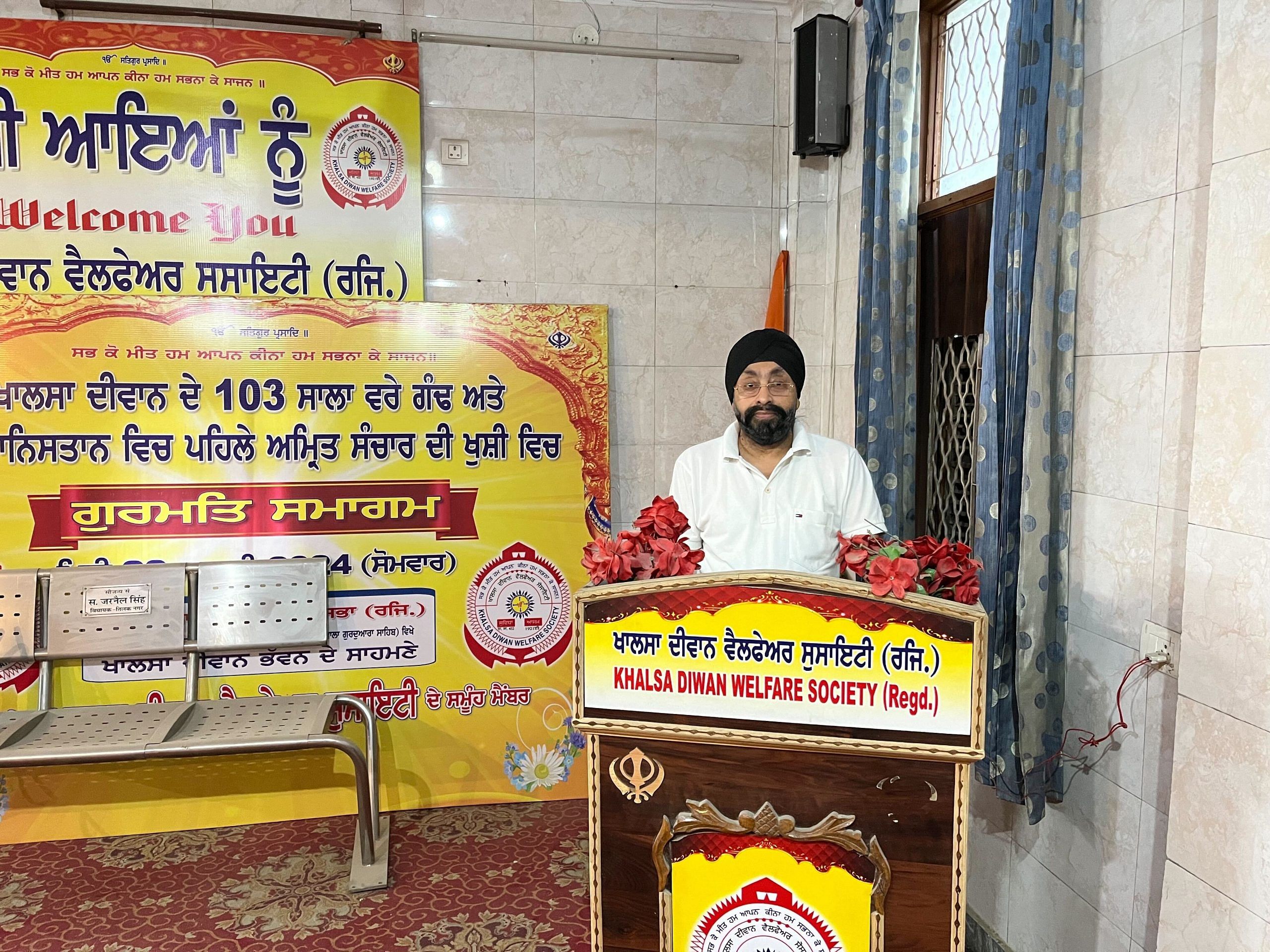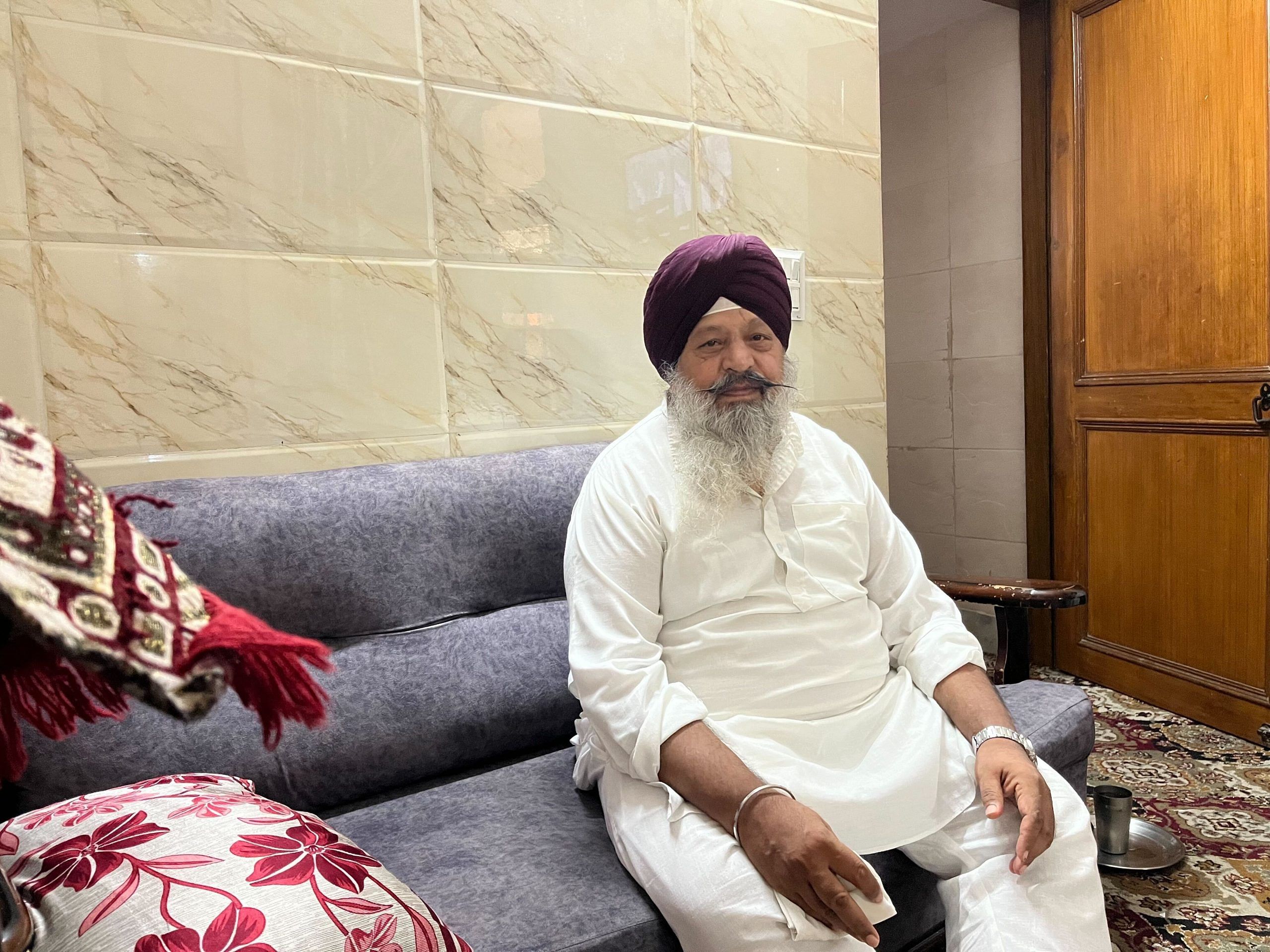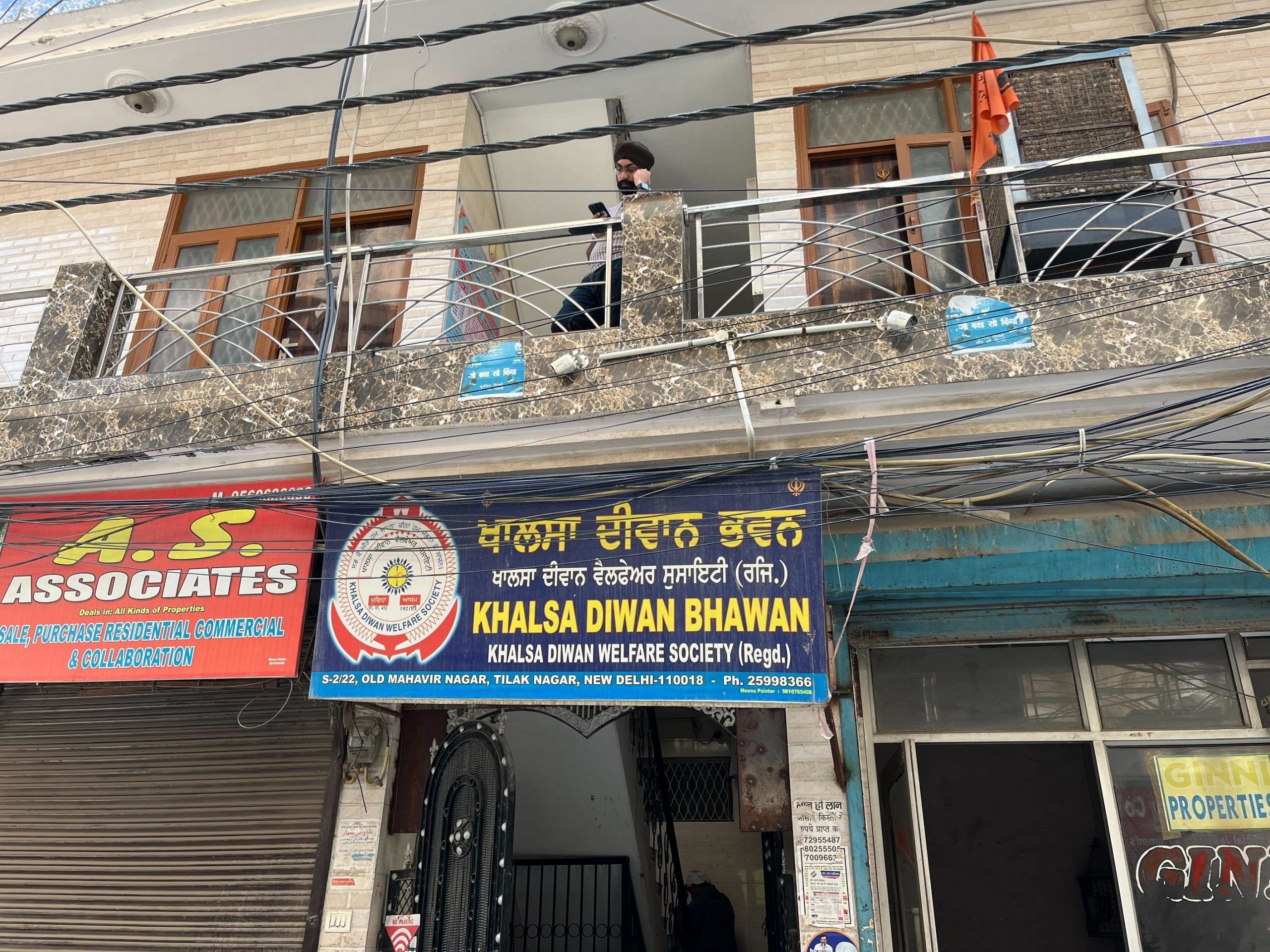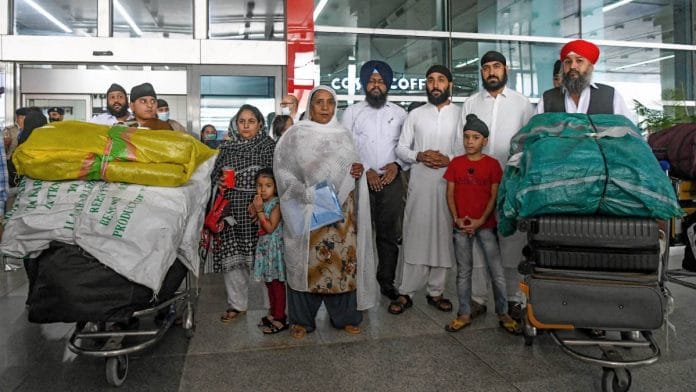New Delhi: Two-thirds of Afghan Sikhs, who arrived in India after fleeing their country following the 2021 Taliban takeover, have settled in Canada, ThePrint has learnt. Private sponsors and Sikh foundations in Canada are believed to be helping those who travelled via India, providing them monthly stipends, housing, groceries, mobile phones and free education for those with children, for the first year upon arrival.
Out of roughly 350 Afghan Sikhs who had fled to India from their war-torn country, 230 are believed to have successfully shifted to Canada.
An Afghan Sikh man, who arrived in Delhi in August 2022, had told ThePrint last February that if he didn’t get a Canadian visa, he would go back to Kabul along with his six children, wife and sister-in-law, given all their temporary Indian e-visas had already expired at the time.
Currently in Toronto after relocating this summer, the 51-year-old told ThePrint over WhatsApp: “I am happy that did not happen. I’m setting up a social security card, a bank account and a permanent residence (PR). In three years, I will apply for Canadian citizenship.”
Delhi-based Khalsa Diwan Welfare Society—the main coordinator for refugees seeking to go to Canada via India—estimates that 120 Afghan Sikhs in India continue to await Canadian visas. “About 230 of those who came after 2021 have settled in Canada. One or two families are in the US. Most are working in construction, truck-driving or at petrol pumps in Canada,” Fateh Singh, general secretary of Khalsa Diwan Welfare Society, told ThePrint.
He said that about 80 of those who remain in India are ready with their documents, but will have to wait until January 2025 to get their visas.
Asked why, Fateh said: “If I had to guess, it’s because the Canadian government is yet to organise adequate facilities for refugees. They are also seeing a high number of visa applications from India, so we have to stagger the applications.”

Born in the Afghan city of Jalalabad, Fateh came to India in 1992 and is currently applying for Indian citizenship under the Citizenship (Amendment) Act, 2019. This law offers a pathway of citizenship for persecuted religious minorities—Hindus, Sikhs, Buddhists, Jains, Parsis or Christians—from Afghanistan, Bangladesh and Pakistan.
This, however, is not an option for Afghan Sikhs who fled their country in 2021 because the CAA only applies to those who had arrived in India before 31 December 2014. Therefore, many view Canada as an appealing option because of the large Sikh diaspora there as well as an easier pathway to citizenship if one is a refugee.
Canada, by law, cannot turn away asylum seekers, even if they lack proper documents.
Piara Singh, a 58-year-old Afghan Sikh who came to India in the 1990s, said that he is helping those Afghan Sikhs awaiting Canadian visas with menial jobs in India.
“They all have temporary stay visas in India. Most are illiterate. They work as auto rickshaw-walas, delivery boys and do other small jobs in gurudwaras. They are biding their time until they shift to Canada. If not for the gurudwaras and strong Sikh community here, they would be homeless, jobless and living on empty stomachs,” he explained.

Also Read: No job, social security: 350 Afghan Sikhs in Delhi who fled Taliban rule await visas to Canada
Role of private sponsors in Canada
Private sponsors are volunteer groups of Canadians or organisations, including faith-based associations, ethnocultural groups or settlement organisations. Many Sikh-based private sponsors have played a key role in sponsoring Afghan Sikhs.
The Khalsa Diwan Welfare Society, established in Delhi in 1993, says it has helped arrange identification documents and Indian stay visas for those Afghan Sikhs that fled the 2021 Taliban takeover. It has also helped these refugees with their Canadian visas, while coordinating with private sponsors in Canada.

“There are many foundations registered with the Canadian government. Manmeet Singh Bhullar Foundation is the main sponsor. They are providing a monthly stipend and other amenities for a period of one year,” Fateh told ThePrint.
The Manmeet Singh Bhullar Foundation was formed after the death of the first turbaned Sikh Cabinet Minister in Canada of the same name. It launched the “Save Afghan Minorities” project in 2015 to help the Sikh and Hindu minorities in Afghanistan.
ThePrint reached out to the foundation via email and social media multiple times, inquiring about their efforts to help Afghan refugees, but had not received a response by the time of publication. This report will be updated if and when a response is received.
Another prominent private sponsor is the Gurdwara Guru Amardas Darbar Sikh Society based in the Canadian city of Kelowna.
There are also other actors, like a ‘Group of Five’ (G5), which is when five or more Canadian citizens or permanent residents arrange to sponsor a refugee living abroad to come to Canada. G5s can only sponsor applicants who are recognised as refugees by either the United Nations Refugee Agency (UNHCR) or the government of the country where the refugee lives.
In August 2022, about a year after the Taliban takeover, the Canadian government passed the ‘Temporary Public Policy to facilitate the resettlement of Afghan Sikhs and Hindus’.
Under this policy, the Manmeet Singh Bhullar Foundation was named the primary implementing partner. The foundation is, therefore, responsible for issuing a referral letter, and providing income and settlement support for the duration of one year to all applicants who have immigrated to Canada under this policy.
This June, Canadian newspaper The Globe and Mail reported that then-defence minister Harjit Sajjan had instructed Canadian special forces to rescue about 225 Afghan Sikhs after the Taliban takeover in August 2021, which allegedly took resources away from getting Canadian citizens on evacuation flights out of Kabul.
The report further claimed that this operation “failed”, when “frightened Afghan Sikhs” left a rendezvous point shortly before Canadian soldiers arrived, and months later, these Sikhs fled to India on flights chartered by others, including the Indian government.
A day later, Tarjinder Kaur Bhullar—the sister of Manmeet Bhullar—wrote an op-ed accusing The Globe and Mail of “incorrect reporting”.
In a piece titled ‘The Globe & Mail Gets The Kabul Evacuation Story Wrong’, published by Sikh media outlet Baaz, she defended Sajjan as doing his job to protect vulnerable groups with whom he shared the same faith, and said that it was “unrealistic” to believe this would come at the cost of Canadians on the ground.
“Others may see my arguments as a favour for Minister Harjit Singh Sajjan because he, like many other parliamentarians, has shared my goal of carrying out the humanitarian work my brother Manmeet Singh Bhullar initiated,” she had written.
(Edited by Mannat Chugh)







They will pledge their loyalties to their Khalistani benefactors once they reach Canada. On obtaining the much coveted Canadian citizenship, they will start spewing anti-India Khalistani propaganda. These are the future foot-soldiers of Khalistani extremism – they will have no qualms in setting fire to Indian consulates and targeting Indian diplomats.
Good riddance!